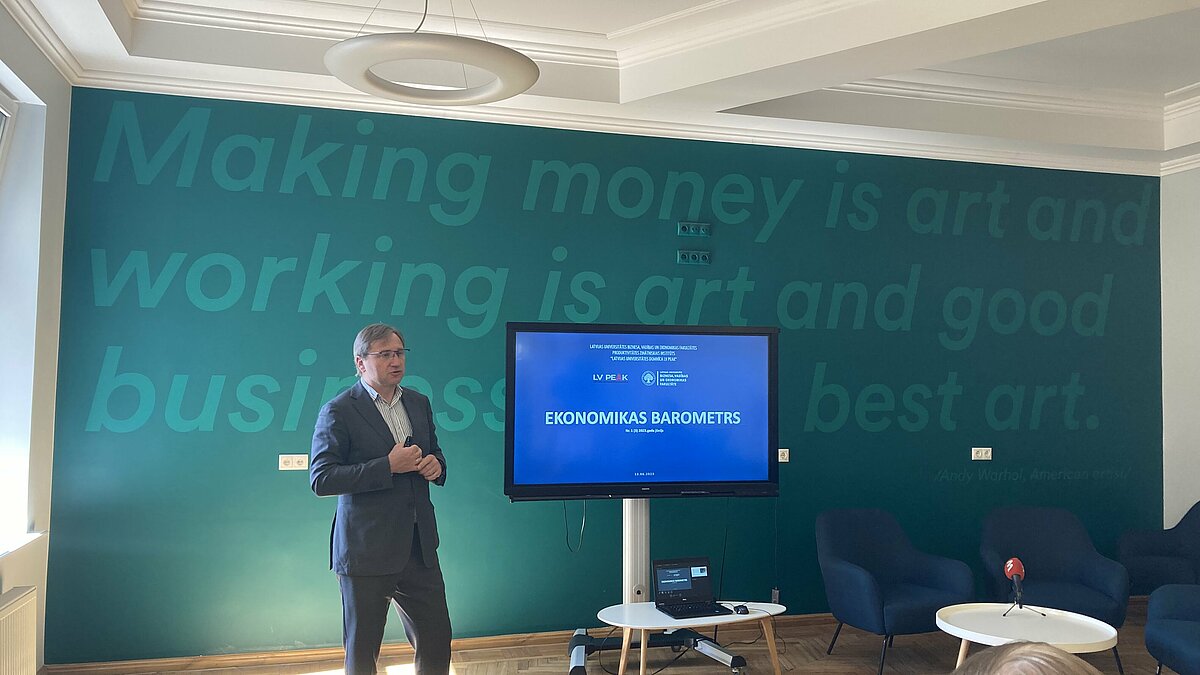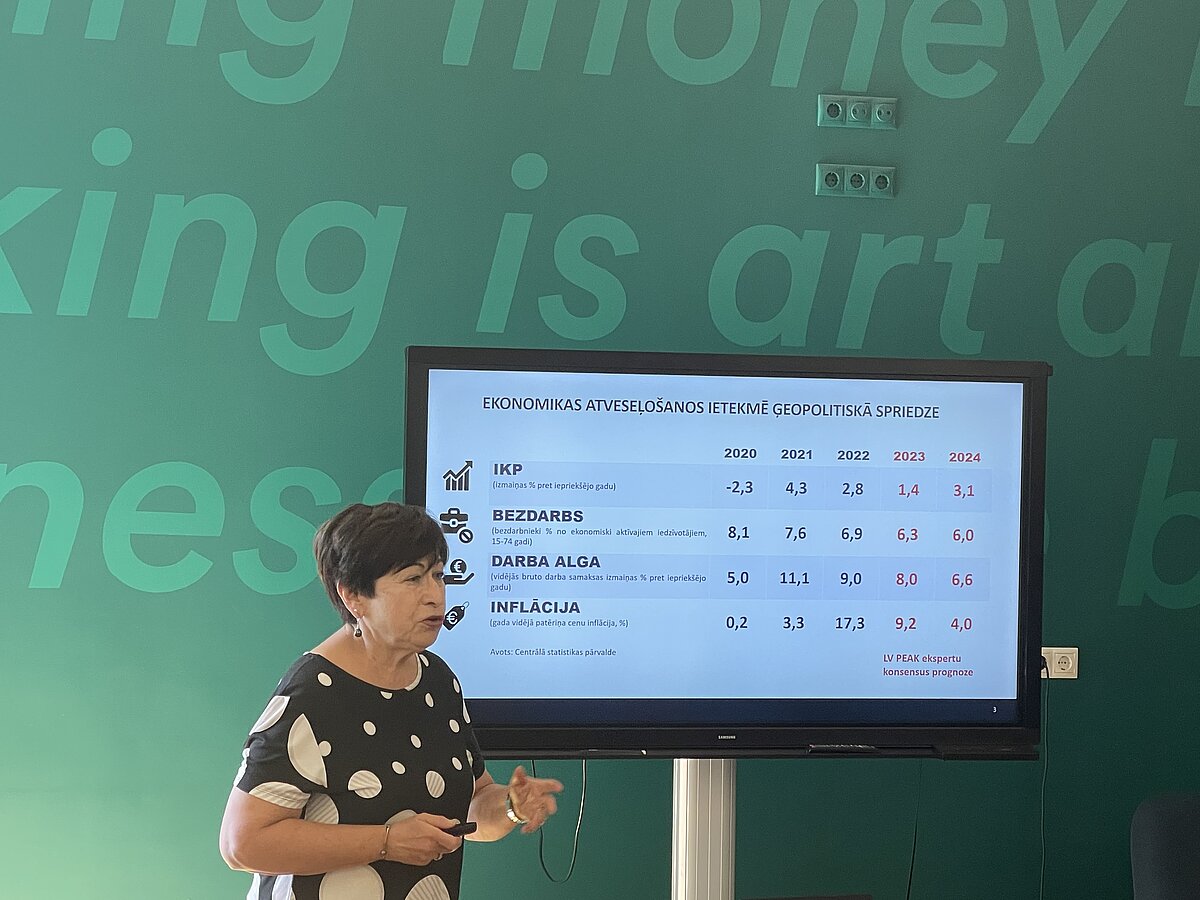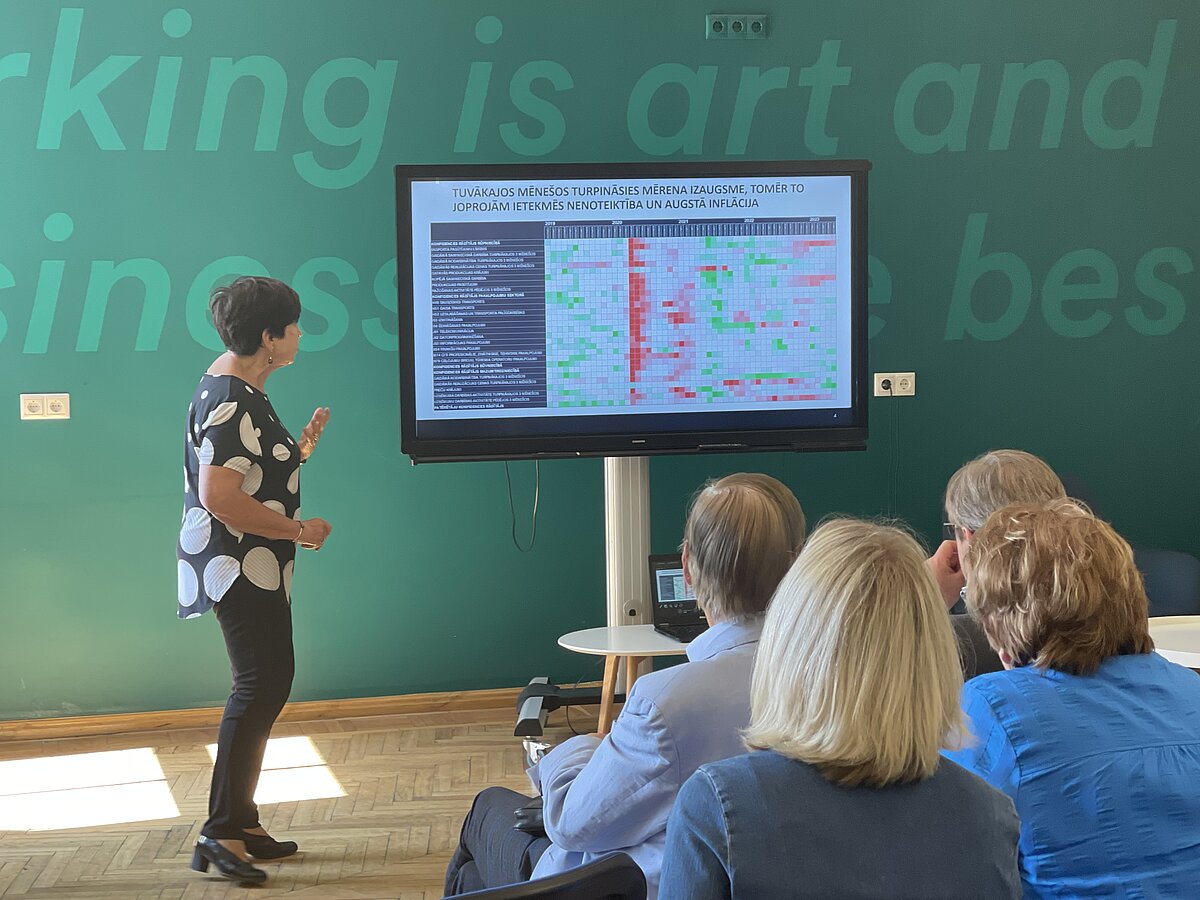
The Productivity Research Institute of the University of Latvia “UL Think tank LV PEAK” has prepared the third "Economic Barometer", which summarises the consensus development forecasts of Latvian and international institutions, as well as leading macroeconomic experts. According to experts' assessment, faster economic growth this year will be hindered by inflation and geopolitical uncertainty, so it is expected that in 2023 Latvia's GDP will grow by only 1.4%.
"The risks of a decrease in Latvia's competitiveness are still very high, as the gap between productivity and labor costs has increased as a result of the crisis caused by the pandemic. In order to increase competitiveness, in addition to support measures for reorientation of companies from Russian markets to others, as well as significant reduction of bureaucracy, shadow economy and corruption, the most important thing is to activate policies aimed at raising productivity. Financing of credit institutions for companies should also be promoted. Compared to the average level of the EU, the low level of lending is one of the main causes of Latvia's growth lagging behind Lithuania and Estonia in the last decade," emphasises Prof. Inna Šteinbuka, the Director of the Productivity Research Institute of the University of Latvia “UL Think tank LV PEAK”.
Global growth has moderated, and inflation has proved more resilient than initially expected. LV PEAK predicts that the average annual inflation will decrease to 9.2% in 2023 and to 4% in 2024. Due to the geopolitical situation, Latvia's GDP grew by only 2.8% in 2022, and it is expected that GDP will grow by only 1.4% this year. Faster economic growth will be hindered by high inflation, which negatively affects private consumption, and geopolitical uncertainty. Experts believe that in 2024, growth will reach 3.1%, which will be facilitated by the increase in investments financed by the European Union (EU) and the faster growth of exports due to the improvement of external demand.
"One of the main tasks of Latvia is to strengthen energy security. Considering the geopolitical uncertainty, it is necessary to carry out a radical assessment of budget expenditures and effectively invest the resources of the Recovery and Resilience Facility to strengthen the competitiveness of the Latvia’s economy," points out Prof. Gundars Bērziņš, the Chairman of the Productivity Board of Latvia and the Dean of the Faculty of Business, Management and Economics of the University of Latvia.
Full report is available here
The purpose of the "Economic Barometer" is to inform the public about economic development trends, emphasising the analysis of competitiveness and productivity, based on the results of the LV PEAK Expert survey and the scientific findings of the Think Tank. The barometer is published twice a year - in June and December. This includes analysis and forecasts of the main indicators of economic development (GDP, labor market, inflation, productivity, labor costs, etc.), recommendations for improving the situation, analysis of leading indicators, review of forecasts of other institutions, as well as a Youth Sentiment Survey.

 CONFERENCE
CONFERENCE

